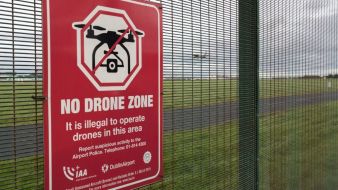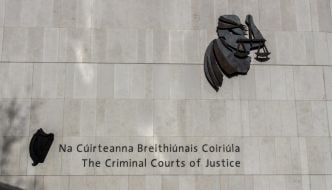The Supreme Court has found that delivery drivers for a pizza restaurant should be treated as employees and not contractors in a decision which has important implications for workers in the gig economy.
The case concerned delivery drivers engaged under contracts in 2010/2011 by Karshan (Midlands) Ltd, trading as Domino's Pizza.
The drivers argued there were employees for tax purposes and Karshan said they were independent contractors under "contracts for service".
Karshan had appealed a 2018 decision of a Tax Appeals Commissioner that the delivery drivers should be treated as PAYE workers. The High Court rejected that appeal, but the Court of Appeal (CoA), in a 2-1 majority, overturned that decision.
The Revenue Commissioners sought and were granted a further appeal to the Supreme Court.
In a unanimous decision on Friday, a seven-judge Supreme Court overturned the CoA decision.
Giving the court's decision, Mr Justice Brian Murray said central to the appeal was whether it was necessary to the establishment of the employment relationship that there be a requirement that the employer and worker owe each other certain "mutual obligations".
Karshan's "theory of mutuality of obligation" was that mutual commitments had to present some type of continuity and to have a forward-looking element. It also argued there had to be an obligation on the part of the employer to provide work and there had to be an obligation on the part of the employee to perform work.
Mr Justice Murray said there was no such requirement in Irish law.
Services
He said the question of whether a contract is one "of" or "for" services should, having regard to well established case law, be resolved by reference to five questions.
The first three that must be met are: does the contract involved the exchange of wages or other remuneration for the work; if so, is the agreement one in which the worker is agreeing to provide their own services and not those of a third party to the employer; and if so, does the employer exercise sufficient control over the putative employee to render the agreement one that is capable of being an employment agreement.
If those three requirements are met, the decision-maker must then determine whether the terms of the contract between employer and worker, interpreted in the light of the admissible factual matrix and having regard to the working arrangement between the parties, are consistent with a contract of employment or some other form of contract.
Regard must also be had to whether the arrangements point to the putative employee working for themselves or for the putative employer.
Finally, the judge said, it should be determined whether there is anything in the particular legislative regime under consideration that requires the court to adjust or supplement any of the foregoing (requirements).
He said in this case the Tax Appeals Commissioner was entitled to conclude, as she did, that the drivers were employees of Karshan for the purposes of the relevant provisions of the Taxes Consolidation Act 1997.
The evidence disclosed "close control" by Karshan over the drivers when they work.
Substitution
While there were some features of their activities that were consistent with their being independent contractors engaged in business on their own account, the Commissioner was entitled to conclude that the preponderance of the evidence pointed to the drivers carrying on Karshan's business rather than their own, he found.
The contract was one that envisaged personal service by them, with the facility for substitution on certain conditions, with the substitutes being paid by Karshan and not by the originally rostered driver, he said.
In observations accompanying the judgment, Mr Justice Murray said it must be stated that the finding that the drivers were employees did not, and cannot, bind any driver who may wish to contend that, in fact, they were not an employee for this or any other purpose.
The question of whether drivers have continuous service for the purpose of other legislation, and in particular employment rights legislation, cannot be decided here, he said.
The question of costs will be decided by the court if agreement cannot be reached on it between the parties in two weeks.
Mr Justice Murray said if the court has to deal with costs issues, it can include anything that may arise from comments he made in the judgment in relation to the potential injustice to Karshan being disproportionately penalised by one arm of the State for conducting its business in accordance with law as it was found by another government department.







